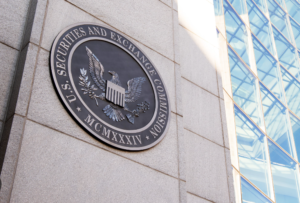$SPY $BTC $XLY
#inflation #economy #prices #politics #stocks #voting #consumer #government #postpandemic #USA #markets #crypto
Persistent consumer agitation surrounding high prices is having major political repercussions in advanced economies, creating a legacy that could impact financial markets as well. Even though inflation rates are normalizing, the deep-seated dissatisfaction from years of elevated costs during the pandemic and recovery period has left a lasting dent in consumer confidence — a key driver for economic growth. In particular, this dynamic is creating significant political consequences as government policies under incumbents receive heightened scrutiny. In countries like the United States, soaring costs translated into pressure on political leaders to address the mounting concerns of voters. This trend is echoed across Europe and other regions, where similar inflationary pressures are said to exacerbate structural issues already present in these economies.
The dissatisfaction isn’t rooted purely in short-term symptoms, like momentary spikes in energy or food prices, but in the long-term erosion of purchasing power for consumers. This reduced purchasing power adversely affects economic participation in key sectors. Consumer discretionary stocks, such as those in the $XLY sector, have been particularly vulnerable to dips in spending. While inflation may be softening, the lag effect on wage growth and household budgets means that consumers continue to be cautious about returning to pre-pandemic spending patterns. Investors are noticing this trend, steering clear of stocks that depend on strong consumer confidence and instead doubling down on sectors considered to be safer bets, such as utilities and blue-chip tech stocks.
Politically speaking, the long tail of inflation’s effects has fueled electoral backlash against ruling parties, which is reflected in recent losses in key races in the United States. What started as financial discomfort during the height of the pandemic has morphed into a pressure-cooker environment where voters are channeling their frustrations on ballot day. Long-lasting inflation-related sentiment is driving not only economic policy reforms but also the growing attention political parties must pay to social welfare spending. This interaction between economics and politics makes equities susceptible to knee-jerk reactions post-election cycles, with stock markets tending to experience volatility when election results are heavily influenced by economic factors.
In the cryptocurrency world, inflation plays another critical role. Bitcoin ($BTC) and other digital assets have benefitted from narratives that paint them as hedges against fiat currency debasement. As global economies pivot away from stimulus-era policies, leading many central banks to tighten monetary policy, investors are faced with more conservative fiscal landscapes. A return to stricter monetary regimes means digital assets may be perceived as an alternative store of value. Nevertheless, the interplay between voters’ dissatisfaction with inflationary episodes and potential political changes could create high uncertainty for emerging markets and assets, driving further crossroads for investors seeking to diversify their portfolios.











Comments are closed.